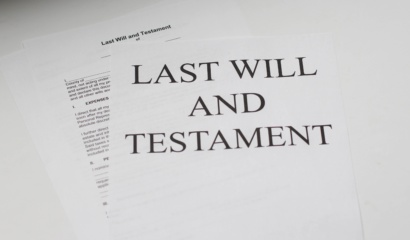Home / Business Legal Lifecycle / Investing In Property / Property Conveyancing
Property Conveyancing
The Process of Buying a Property
The Conveyancing Process
The process of buying a property is called conveyancing. Different conveyancing processes are utilised around the world, so always seek local legal advice to ensure that you follow the correct procedures. Whilst conveyancing processes are similar throughout Australia, for the purposes of this I will discuss the process in Queensland, Australia which is generally as follows:
Inspection
Prospective buyers inspect a property for sale to make a decision about whether to attempt to buy the property from the seller.
Making an Offer
Ordinarily, a buyer will make an offer to the vendor in a private sale (it can also be at an auction) and the seller then has the choice to accept or reject the offer, or attempt to negotiate a different deal with the buyer.
Signing the Contract
Once a purchase price is agreed, the buyer and the seller sign a contract for the sale of land, which will include all of the improvements (such as buildings) on the land or in the case of a unit, the unit itself.
Legal Advice from a Conveyancer
The parties each appoint a separate lawyer (or legal conveyancing services) to handle the conveyancing process and the lawyer reviews the contract. They should explain to their client the various obligations and rights placed on their client as a result of signing the contract.
The lawyer (or conveyancer) should also explain what must be done by the buyer in order to ensure that the buyer is able to ‘settle’ the transfer of the property.
Settlement Date Decided
The term ‘settle’ refers to the time that the buyer actually pays the purchase price to the seller and the seller actually transfers the property to the buyer.
Legal Documentation
The lawyer (or conveyancer) drafts all of the required legal documents to give legal effect to the transfer of the property. The lawyer (or conveyancer) also ensures that the legal documents are signed, as necessary, by the parties to the transaction.
Settlement Notice
Ordinarily, the lawyer (or conveyancer) acting for the buyer will also lodge a document known as a settlement notice on the title to the property. The purpose of this document is to prevent the seller from transferring the property to a third party unknown to the buyer.
Legal Searches
Part of legal conveyancing services is that the lawyer (or conveyancer) conducts searches through numerous government and body corporate records to ensure that the property is as it appears and that there are no problems that need to be addressed pursuant to the terms of the contract. It is important that you engage a competent and experienced lawyer (or conveyancer) so that they can properly review these searches so that your rights are protected.
Settlement Day
The lawyer (or conveyancer) liaises with banks and other parties to ensure that everything and everyone is coordinated for, and on, the day of settlement. Each party’s legal conveyancing services attends the place of settlement and settles the transfer of the property.
As can be seen from this very brief outline of the steps to be taken in the conveyancing process, the process is a complicated one with a variety of steps required to ensure that the parties comply with both the terms of the contract and the legislation governing the process.
Important Factors to Consider when Buying a Property
There are a number of important considerations that a property investor needs to think about before making a decision to purchase. The following is a list of standard elements of the transaction you must consider prior to entering into the contract to purchase a property:
Entity
What entity or vehicle are you going to use to buy the property? The various types of entities are discussed in section 2.1. You should take the advice of your lawyer, accountant and financial planner in relation to these matters as there will be significant legal and financial implications depending on your decision.
Purchase price
It is important when buying a property that you consider the purchase price properly; not only in terms of affordability and market rate but also as part of your overall investment strategy.
Deposit
The deposit is the amount that is paid to the stakeholder (usually the agent) and can be forfeited to the seller if the buyer defaults under the contract. Generally, a deposit for the purchase of property in Queensland should be no more than 10% of the purchase price. This is distinct from the deposit required by any bank that is funding your purchase. Depending on the type of property and your history with the bank they may require that you put up your own funds of up to 20% to 30% of the purchase price as a deposit on your loan.
Mortgage
It is important to consider how you are going to be able to afford to purchase the property. If you are going to borrow money from a financier, you must ensure that the contract is subject to obtaining finance approval from a bank or financial institution.
Building and pest inspections
When buying a property, you should always make the contract subject to a satisfactory building and pest inspection.
What do you do if an encumbrance is listed on the contract?
An encumbrance is definitely something that you should be concerned about. If an encumbrance is listed, then you should ask the agent for an explanation of what it is about and then seek advice from your lawyer (or conveyancer) as it may adversely affect the property you are buying.
Is the property leased?
If it is then you need to ensure that you know when the lease ends and what rent is being received. The question of when the lease ends is important if you want to live in the property yourself. On the other hand, if you are looking to buy an investment property, a lease will affect your return on the investment if the tenant leaves. You should also consider the tenants that are in the property and the bond that is held. This may be important depending on the tenants and how much work may be required to rectify any damage to the property caused by the tenants.
Special conditions
Depending on your circumstances or the condition of the property, you may require special conditions to be written into the contract. Some agents will draft their own special conditions; however, it is always advisable that you check these conditions with your solicitor to ensure the effect of the clause is in accordance with your requirements.
Completion
There are a number of factors that determine when the parties settle the contract. It is common practice to settle the purchase of the property at least 30 days from the contract date.
Interested In Discovering Your Legal Risks?
FAQs
Have an Enquiry?






